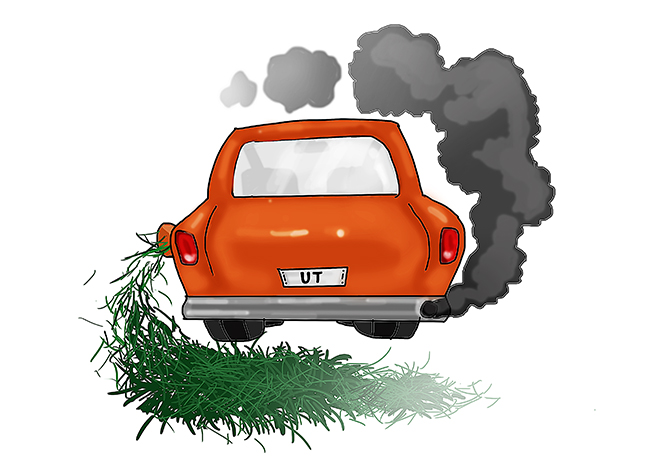Editor's note: This column appears in a point-counterpoint regarding UT's research on the use of switchgrass as a biofuel. To read its counterpoint, click here.
Energy usage is on the rise. According the U.S. Energy Information Administration, world energy consumption is said to increase by 56 percent by 2040. As our usage of energy increases, however, our traditional means of getting energy are actually depleting. As Ecotricity puts it, “Clearly fossil fuel reserves are finite.” They estimate that by 2088 the world will be depleted of all fossil fuels. Moreover, the constant usage of fossil fuels drastically increases carbon emissions, which in turn leads to climate change.
An alternative solution exists in the form of a biofuel. Biofuels are derived from living matter and are most commonly produced from plants. We can grow these plants in mass amounts and create ethanol through the process of fermentation, which can be used as fuel. They help serve as a means of sustaining energy and reducing the effects of global warming.
However, some feel that biofuels are counterproductive, purely because they require mass plant growth through means of fertilizers. Many studies indicate that groundwater becomes contaminated by fertilizer use. But with GMO production increasing, there actually is the possibility for a decrease in fertilizer usage. Through GMOs, we’re still able to churn out a mass amount of plants for fuel without having to worry about contaminating our water.
Critics also introduce the idea that biofuels actually lead to water overuse because we would need a greater crop yield. But again, GMOs solve this problem. Another benefit to biofuels is the type of plant we use to create the biofuel. Research indicates that switchgrass has great potential because of its widespread prevalence and how easily it grows.
The biggest benefit of biofuels is the very fact that they limit fossil fuel consumption. In a world with biofuels, we would have fewer greenhouse gases, less reliance on nonrenewable energy, and greater energy independence. While there may be some minute harms to using biofuels, the harms of not doing so outweigh those on a much greater scale.
It’s almost ridiculous to introduce the notion that biofuels are counterproductive, especially when considering the fact that without biofuels, climate change is ever more imminent. Biofuels are scientifically proven to effectively reduce carbon emissions, so it only makes sense to promote their development.
Syed is a biochemistry freshman from Houston. You can follow him on Twitter @mohammadasyed.





















